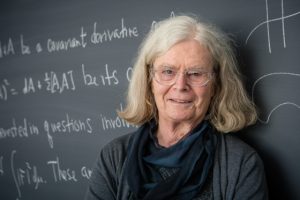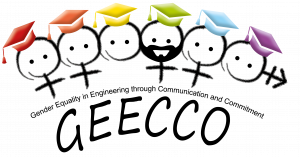Karen Uhlenbeck, a mathematician and professor at the University of Texas, has been awarded with this year’s Abel Prize, a mathematics prize modelled after the Nobels.
The news—arrived some days after the International Women’s Day celebrated on 8th March—is rather noteworthy since it’s the first time the prize goes to a woman.

Uhlenbeck, 76, is mostly known for her work with partial differential equations but her decades-long career spans multiple disciplines, including physics, geometry and quantum theory.
A great number of scientists, and not only, have expressed their recognition to her works contributions.
A quotation I consider really meaningful is that by UNESCO Director-General Audrey Azoulay, who said: <<Awarding this prestigious prize to Karen Uhlenbeck is a tremendous encouragement for women scientists. In the age of artificial intelligence and digital revolution, mathematics is a universal language and women must play their full part.>>
Today, only three of ten researchers in the world are women, as demonstrated by UNESCO Science Report, and only 3% of Nobel Prizes in the sciences have been awarded to female researchers.
In particular, mathematics, a prestigious discipline that gives rise to innovation in many areas, is one of the scientific fields in which women are least well represented at the highest level. Since the creation of the three most prestigious international mathematics awards (Fields, Wolf and Abel), 142 laureates have been recognized, only two of them female: Maryam Mirzakhani, 2014 Fields Medal, and now Karen Uhlenbeck, 2019 Abel Prize. (Source: Unesco article)
I am not telling you anything new: scientifical and technical fields are the ones where gender gap is most acute.
It lays on the prejudice according to which women are better suited to educational and social work.
Yet, evidence shows that female students complete their scientific studies with excellent marks and stereotypically female behaviours like sensitiveness, creativity and teamwork are skills more and more useful and appreciated in the labour market.
In recent years many actions have been taken up in order to reduce gender discrimination in STEM fields (Science, Technology, Engineering, Mathematics).
- In PoliTo (Polytechnic of Turin), in Italy, where I have been studying some years ago, it has been existing the “Woman: profession engineer” project (active at least till 2014, as
 far as I know) funding 20 scholarships to female students enrolled in Engineering.
far as I know) funding 20 scholarships to female students enrolled in Engineering. - During the academic year 2018–2019, UPC (Universitat Politècnica de Catalunya) set into motion “Aquí STEAM” project, adressed to 9–14-year-old girls in order to inform and eventually attract them to take up their studies in STEM fields.
UPC is also a partner of GEECCO project, funded from EU’s Horizon 2020 research and innovation programme, whose purpose is to enhance systemic institutional change towards gender equality in STEM, aiming to increase the number of women in research. More information and contacts available here and here. - Finally, every year on the fourth Thursday of April and, specifically, on 25th April 2019, International Girls in ICT Day is celebrated in many countries worldwide.
Generally speaking, all these projects aim to
- encourage girls to enroll in STEM-field studies;
- increase the female presence in engineering and sciences studies, as well as reduce the number of girls giving up their studies in such courses;
- erase any gender discrimination in STEM courses;
- help female engineers and scientists to find an employment;
- promote equal opportunities in the academic world;
- eradicate the prejudice that women are more for arts and humanities and social sciences.
Thus, if you are a young girl or a woman and you want to take up your studies, research or career in a scientific field, you just have to look it up on the internet: you’ll surely find a project suitable for you with available funding and scholarships.
I promise, AdMoRe only-woman‘s honour. 😉
